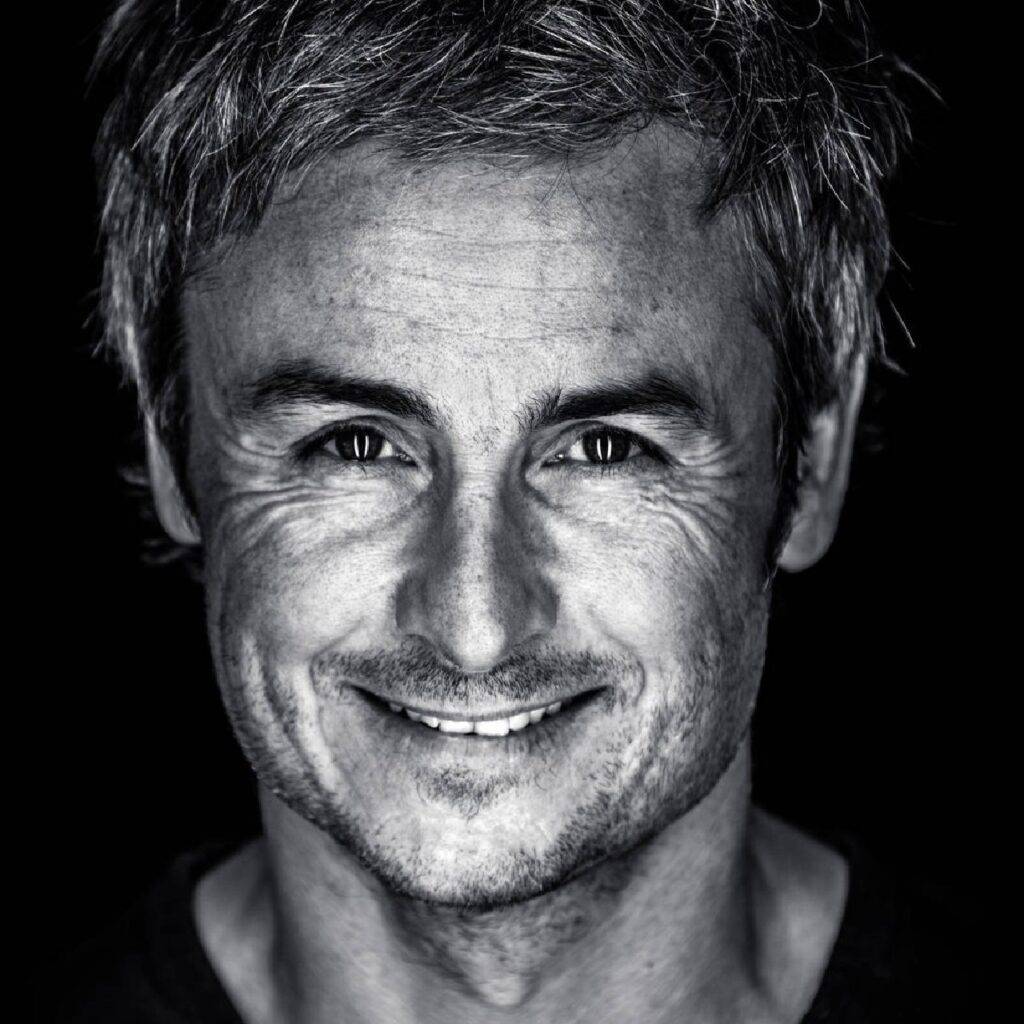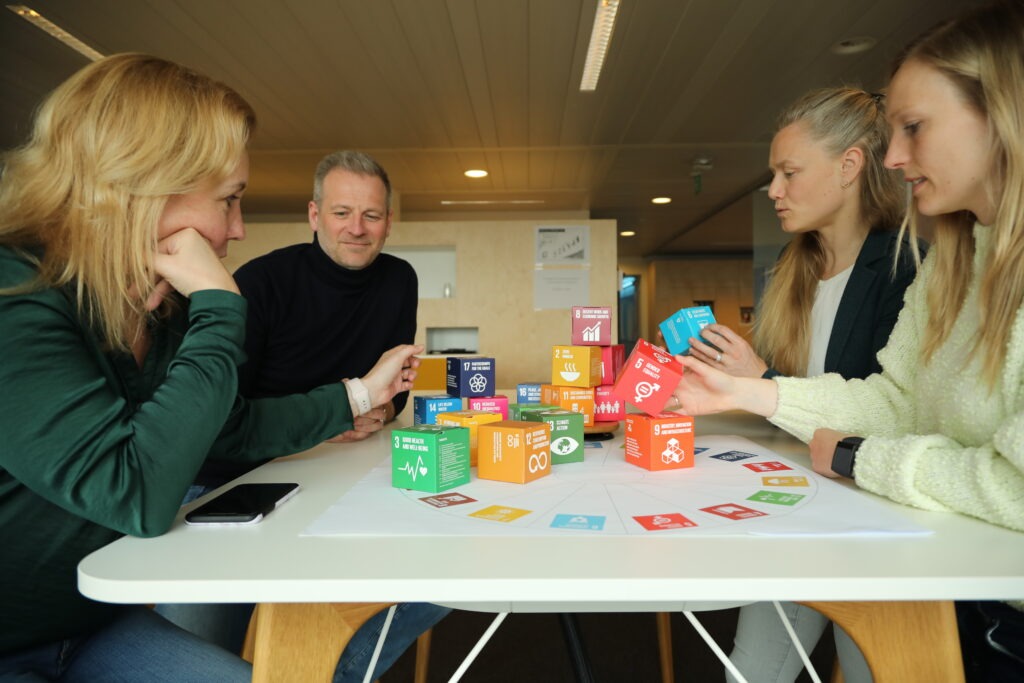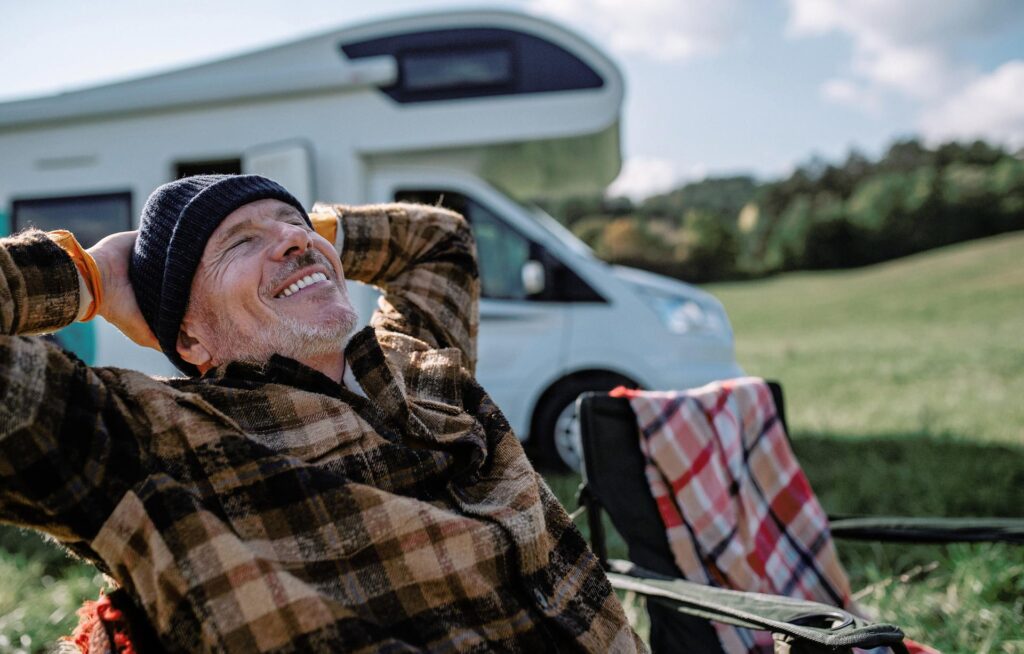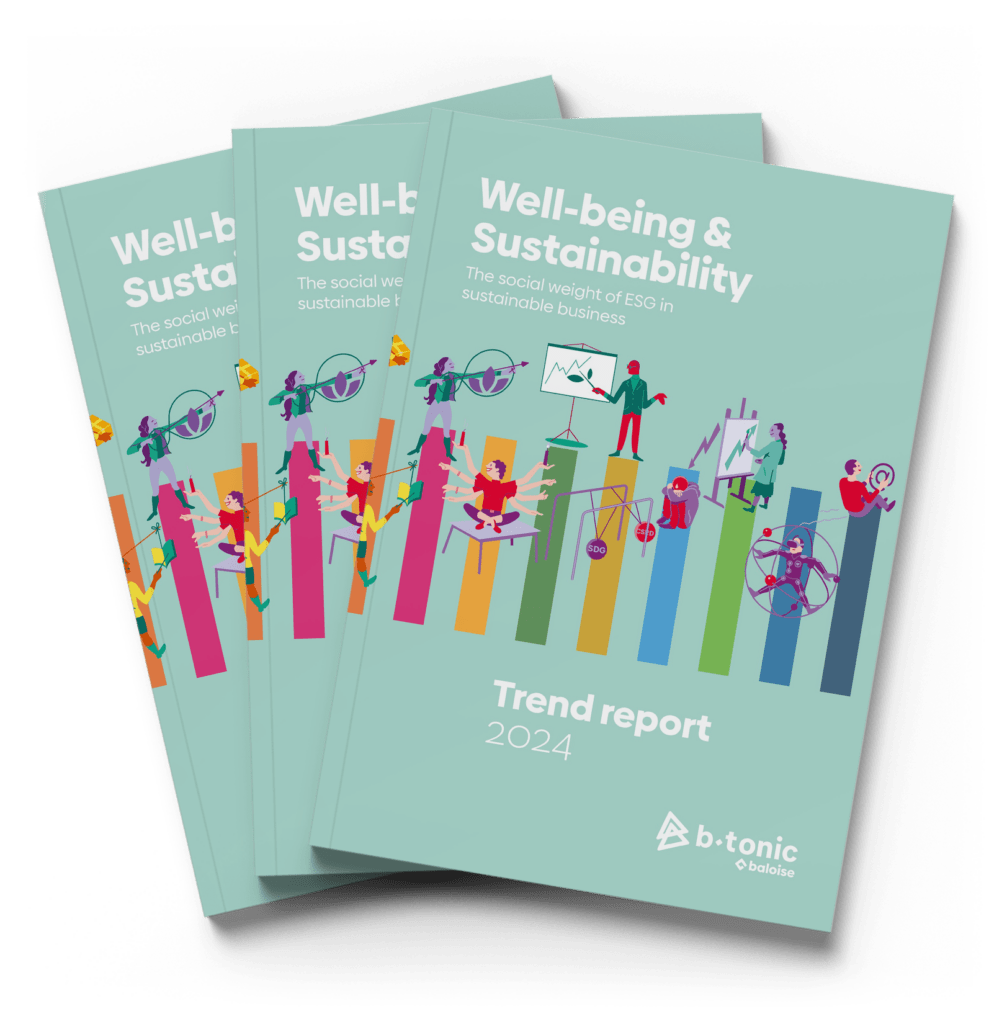With a scientifically substantiated self-leadership programme, B-Tonic, subsidiary of Baloise Insurance, targets people who want to be more in charge of their jobs, careers and lives. ‘This leadership programme combines motivating and inspiring experiences with immediately applicable techniques and is valuable for everyone: from CEO to administrative assistant.’
Siviglia Berto, managing director at B-Tonic, found a like-minded adventurer in wingsuit athlete and high performance psychologist Cedric Dumont. Together, they set their sights on a goal-oriented programme that takes participants out of their comfort zone and immerses them in an unforgettable experience as a group at a unique location at home or abroad. In the process, practical exercises are complemented by psychological insights and concrete take-aways.
What is self-leadership – and why is it so important?
Siviglia Berto: ‘Self-leadership ensures that people take care of themselves. They do so by taking control themselves. And by giving direction to their lives based on their personal ambitions, dreams, needs and values. Those who dare to put themselves centre stage draw a lot of positive energy from this. This programme fits perfectly with the five pillars of B-Tonic, which we use to strengthen people’s general mental and physical health. More specifically: self-leadership, healthy thinking, healthy exercise, healthy eating and healthy sleeping.’
“In (self)leadership, listening to yourself is just the starting point. You also have to be daring. And those who dare get much more satisfaction, more joy and fewer regrets.“
Cédric Dumont
High-performance psychologist, entrepreneur and adventurer
Cedric Dumont: ‘In self-leadership, listening to yourself is just the starting point. You also have to be daring. I also wrote that in my book Dare To Jump. Daring to jump goes very wide. It also means: dare to be yourself, dare to speak your mind, dare to stay in line with your personal values, dare to trust, dare to make choices, and so on. That means making yourself open and vulnerable – and taking risks. Because to win, you have to dare. And those who dare get much more satisfaction, more joy and fewer regrets. That is a strong starting point.’
How are people an effective (self) leader in uncertain corona times?
Siviglia Berto: ‘Above all, they need to keep their goals and values in mind. And be agile and resilient. People can maintain that focus better when they completely disconnect from everything once in a while. In my case, for instance, that works fine by going for a walk in nature, where I completely disconnect and unwind. But that is different for everyone. Some can de-connect optimally by reading, jogging, playing sports, cooking, playing music and so on.’
Cedric Dumont: ‘Resilience is indispensable in uncertain times. I call this cognitive reframing: your life is not about what happens, but how you view things. Anyone under pressure or stress immediately thinks about everything that could go wrong from a natural reflex. It requires self-knowledge to change direction, habits or thinking patterns. But those who handle it optimally and look at it the right way can grow even in difficult times. Uncertain times can just make people stronger and more resilient.’

Uncertain times often also create anxiety: how do people deal with it optimally?
Cedric Dumont: ‘Personally, I find uncertainty very fascinating – and certainty sleep-inducingly boring. It is logical that people look for certainty out of some kind of protection or survival instinct. But uncertainty does not have to be a problem: it can even be a solution. Uncertainty helps you stay alert and on your toes and not doze off into ingrained habits. Embracing uncertainty allows people to constantly question, reinvent and stay relevant in our fast-changing world. The same with fear: it limits and paralyses us, but you can also transform fear into a drive – into a source of power. Our programme shows techniques for that.’
In what ways does the programme strengthen self-leadership?
Siviglia Berto: : ‘Leadership is not a title but a mindset. And you can train that mindset. You can sharpen power skills for that. Firstly, by focusing on ownership: people need to realise that they are fully responsible for everything they do or do not do in their lives or businesses. There can also be a focus on purpose: why do we do what we do? Then there is focus: be very selective with what you do. Do less, but better. Those who work effectively and efficiently keep more time for themselves. That too is a win-win situation. The last pillar is trust: you want to work with others because there is trust. Trusting people also takes courage.’
“Self-leadership ensures that people take care of themselves. Those who dare to put themselves at the centre draw a lot of positive energy from this.“
Siviglia Berto
Managing Director at B-Tonic
Siviglia Berto: ‘Our self-leadership programme zooms in on all those issues. Self-leadership ensures that people take care of themselves. Companies, too, are increasingly seeing the value of this. They realise that the emotional well-being and mental health of their people is an integral part of performance. This is not a lifestyle trend. We use scientifically substantiated techniques, work in a result-oriented way and take a personal approach: everyone gets something out of this programme’.





